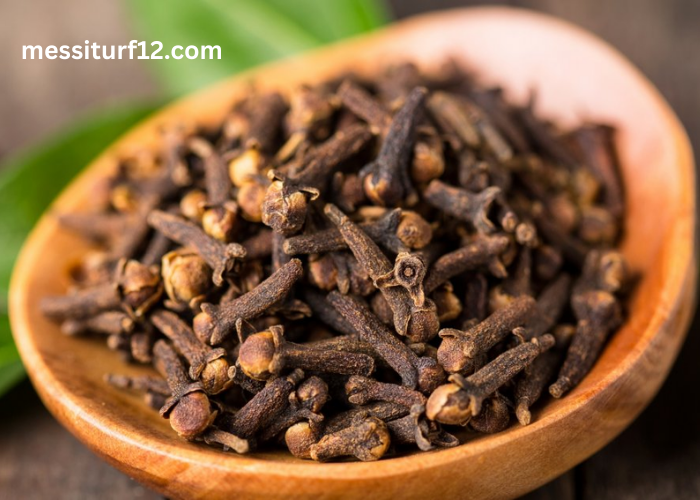Cloves, scientifically known as Syzygium aromaticum, have been cherished for centuries for their unique flavor, aromatic qualities, and numerous health benefits. These small, dried flower buds originate from the clove tree, which is native to the Maluku Islands in Indonesia. Today, they are cultivated in various tropical regions around the world and have become a staple ingredient in many cuisines. This article delves into the history, culinary uses, health benefits, and cultural significance of cloves, showcasing their remarkable versatility.
Historical Background
The history of cloves dates back to ancient times, where they were highly prized in trade. They were a sought-after spice in the Roman Empire and later became integral to the spice trade routes established by Arab merchants. Cloves were so valuable that they were often used as currency, and their high demand led to fierce competition among European powers seeking control over their trade.
During the Age of Exploration, cloves played a significant role in the expansion of European maritime empires. The Portuguese were among the first Europeans to discover the clove islands, later followed by the Dutch, who sought to monopolize the clove trade in the 17th century. This historical context highlights not only the economic importance of cloves but also their cultural significance as a symbol of wealth and luxury.
Culinary Uses
Cloves are renowned for their intense flavor and aroma, which can enhance a wide array of dishes. They are commonly used in both savory and sweet recipes, making them a versatile spice in culinary traditions worldwide.
Savory Dishes
In savory cooking, cloves are often used in marinades, stews, and curries. Their warm, slightly sweet flavor complements meats, especially in dishes like Indian biryanis, Moroccan tagines, and various Middle Eastern recipes. Cloves can be used whole or ground, with whole cloves providing a more pronounced flavor when cooked slowly, allowing their essential oils to infuse into the dish.
In many cultures, cloves are an essential ingredient in spice blends. For example, they are a key component of garam masala in Indian cuisine and are often found in Middle Eastern spice mixtures like baharat. Their unique flavor profile adds depth and complexity to dishes, making them a favorite among chefs and home cooks alike.
Sweet Dishes
Cloves are also commonly used in baking and dessert recipes. They are often found in spiced cakes, gingerbread, and holiday treats like mulled wine and spiced cider. The sweet, aromatic qualities of cloves pair well with fruits, making them a popular choice in fruit preserves, pies, and compotes.
Furthermore, cloves are used to infuse flavors into beverages. In addition to mulled wine, they are often added to teas and herbal infusions for a warming, aromatic touch. The ability of cloves to enhance both sweet and savory dishes showcases their remarkable versatility in the kitchen.
Health Benefits
Beyond their culinary uses, cloves have been celebrated for their health benefits for centuries. They are rich in essential nutrients and bioactive compounds that contribute to various health-promoting properties.
Antioxidant Properties
Cloves are an excellent source of antioxidants, which help combat oxidative stress in the body. The main active compound in cloves, eugenol, is known for its potent antioxidant effects. By neutralizing free radicals, antioxidants can reduce the risk of chronic diseases and support overall health.
Anti-Inflammatory Effects
Eugenol not only provides antioxidant benefits but also possesses anti-inflammatory properties. This makes cloves beneficial for individuals suffering from inflammatory conditions, such as arthritis. Incorporating cloves into the diet may help alleviate symptoms associated with inflammation.
Dental Health
Cloves have a long-standing reputation for promoting dental health. Clove oil is often used in dental practices for its analgesic and antiseptic properties. It can help relieve toothaches, reduce inflammation, and combat oral bacteria. Many natural dental products contain clove oil due to its effectiveness in maintaining oral hygiene.
Digestive Aid
Cloves have been traditionally used to support digestive health. They can help alleviate digestive issues, such as bloating and gas, by promoting the production of digestive enzymes. Cloves may also stimulate appetite and improve overall digestion, making them a valuable addition to meals.
Blood Sugar Regulation
Some studies suggest that cloves may have a positive impact on blood sugar levels. The compounds in cloves have been shown to enhance insulin sensitivity and help regulate blood sugar levels, making them beneficial for individuals with diabetes or those at risk of developing the condition.
Cultural Significance
Cloves have not only influenced cuisine and health practices but have also held cultural significance across various societies. They have been used in traditional medicine, rituals, and even in religious practices.
In traditional Chinese medicine, cloves are believed to have warming properties and are used to treat various ailments, including digestive issues and respiratory conditions. Similarly, in Ayurveda, cloves are valued for their ability to balance the body’s doshas and support overall health.
In many cultures, cloves are used in rituals and ceremonies. For example, in some parts of Africa, cloves are burned as incense during religious ceremonies to purify spaces and promote spiritual well-being. Their aromatic qualities make them a popular choice for creating soothing atmospheres during meditation and relaxation practices.
Conclusion
Cloves, or clou de girofle, are a remarkable spice with a rich history, diverse culinary applications, and numerous health benefits. From enhancing the flavor of dishes to promoting overall well-being, cloves have earned their place in kitchens and cultures around the world.
As culinary enthusiasts continue to explore innovative ways to use cloves, their versatility and aromatic qualities ensure that they will remain a beloved ingredient for generations to come. Whether enjoyed in savory dishes, sweet treats, or health-promoting remedies, cloves truly embody the essence of culinary and cultural richness.

